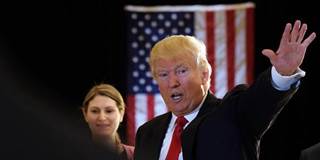A trend toward greater authoritarianism seems to be spreading worldwide, from Russia and China to the US. And yet, while abuse of power – the ability to cause others to do what we want – is as old as human history, leaders without it cannot lead.
CAMBRIDGE – A trend toward greater authoritarianism seems to be spreading worldwide. Vladimir Putin has successfully used nationalism to tighten his control over Russia and seems to enjoy great popularity. Xi Jinping is regarded as China’s most powerful leader since Mao Zedong, presiding over a growing number of crucial decision-making committees. Turkey’s president, Recep Tayyip Erdoğan, recently replaced his prime minister with one more compliant with his drive to concentrate executive power. And some commentators fear that if Donald Trump wins the US presidency in November, he could turn out to be an “American Mussolini.”

CAMBRIDGE – A trend toward greater authoritarianism seems to be spreading worldwide. Vladimir Putin has successfully used nationalism to tighten his control over Russia and seems to enjoy great popularity. Xi Jinping is regarded as China’s most powerful leader since Mao Zedong, presiding over a growing number of crucial decision-making committees. Turkey’s president, Recep Tayyip Erdoğan, recently replaced his prime minister with one more compliant with his drive to concentrate executive power. And some commentators fear that if Donald Trump wins the US presidency in November, he could turn out to be an “American Mussolini.”